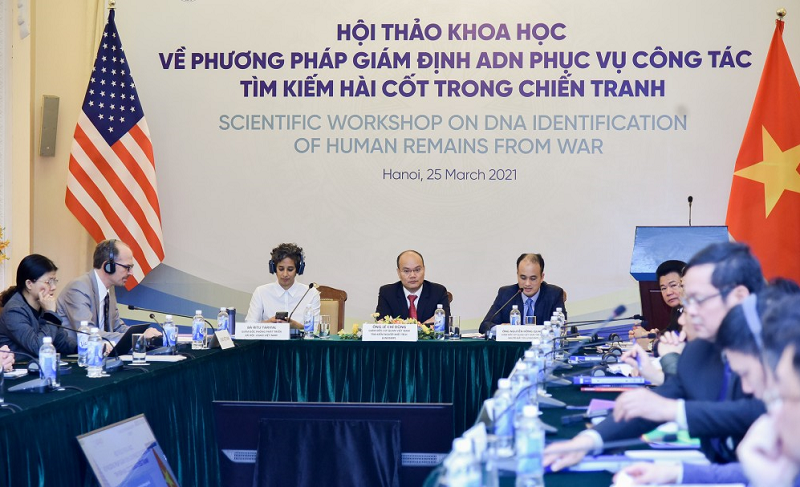US helps Vietnam improve capacity in identifying MIA soldiers
Improving capacity helps speed up accounting of both Vietnamese and American soldiers missing in action.
The United States Agency for International Development (USAID) has assisted Vietnam’s related agencies to update technologies in identifying human remains from war.
| US and Vietnam experts at a workshop. Photo: Baoquocte |
The support comes from the Defense POW/MIA Accounting Agency (DPAA) under the US Department of Defense, the Defense Department’s only forensic DNA testing laboratory for the identification of human remains Armed Forces DNA Identification Laboratory (AFDIL), and the International Commission on Missing Persons (ICMP).
Experts from the US agencies and organizations have helped Vietnamese agencies to be equipped with updated technologies and methods in DNA identification for Vietnamese soldiers missing in action.
Mission Director for USAID Vietnam Ann Marie Yastishock said the US government has committed to supporting Vietnam with advanced technologies in identifying wartime human remains.
Le Chi Dung, director of the Vietnamese Office for Seeking Missing Persons (VNOSMP), said human remains identification capacity in Vietnam remains poor in terms of technologies and facilities.
The support will really help in the joint search for remains of American servicemen missing in actions in Vietnam.
Since 1988, Washington and Hanoi have conducted 134 Joint Field Activities in Vietnam to provide the fullest possible accounting for US missing personnel from the war.
As a result, it has led to the accounting of more than 700 Americans in Vietnam. There remains roughly 1,200 Americans unaccounted for in Vietnam from the war.
US Ambassador to Vietnam Daniel Kritenbrink believes that efforts from both sides to solve war legacies could help build trust between the two former war adversaries.











